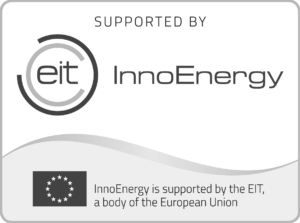29.04.2020
ProVaHealth project: testing novel solutions in real-life environments
In March 2020 the 3-year-project Product Validation in Health (ProVaHealth) was completed. The purpose of the Interreg Baltic Sea Region funded project (October 2017 to March 2020) was to stimulate collaboration between fifteen health and wellbeing living labs across the Baltic Sea.
Living lab by definition is a multi-stakeholder driven user-centered open innovation approach to co-create and test novel solutions in real-life environments.
Published report presents the key findings regarding the development efforts to co-create sustainable business models and services for living labs to support SMEs and start-ups internationalization efforts.
The analysis of 101 different business model attributes revealed that current and future business models among ProVaHealth consortium living labs were multifaceted, but also some common elements were found.
Local and regional innovation network and ecosystem had a great impact on the possibilities to run a living lab. Citizen, local authority, industry, intermediary (or widespread) and state driven partnership models were detected among living labs. As a result, the living lab business model is, in fact bounded by the possibilities and restrictions derived from the surrounding partners and ecosystem. A partnership strategy grounded on widespread partnerships is suggested as the best choice for living labs when possible, since partnerships have a tendency to lead to customerships.
Personnel and infrastructure costs are the most important cost elements for living labs, thus making the living lab approach difficult to scale. Unique infrastructure had positive impact on getting projects, but caution should be exercised, as investments have not always paid out, even if they had an impact to gain more customers and projects. Public project grants and fixed funding are the dominating revenue sources now and in the future, making living labs greatly depend on the availability of the public funding programs.
The key living lab services includes (1) innovation network orchestration and funding support, (2) project planning and management, (3) market and competitor intelligence services, (4) co-creating products, services and processes, (5) testing and validation services, (6) business advisory and management consulting, and (7) marketing and sales support.
Opportunities for transnational cooperation should be sought from smart specialization strategy, in which living labs have their own special approach, but as a whole, they could offer comprehensive services.
Read about testing experience:
Sanoste: personal recipes for physiotherapy
Solutions from Cognuse help nurses follow instructional aids and adhere to protocols
SoftComply: Atlassian apps for medical device companies to get innovative products to market faster
ProVaHealth was an Interreg Baltic Sea Region funded three years project with a €2,7 million budget.
ProVaHealth facilitated access to health infrastructures for startups and SMEs (small and medium sized enterprises). It promoted commercialization based on excellent client validation opportunities, hands-on feedback and input for product development. The project was coordinated by Tallinn Tehnopol, Estonia.
ProVaHealth has produced a Self-Evaluation Toolbox for Living Labs, tested within 14 ProVaHealth Living Labs. Also, a Transnational Living Lab Concept, including a service model, based on the needs of health SMEs from all BSR countries was created. At the end of the project 14 partner Living Labs have had their long-term business plans constructed. 14 SMEs had their service and/or product validated through ProVaHealth project procedures.
Read the report HERE
Have a look at the reports HERE












